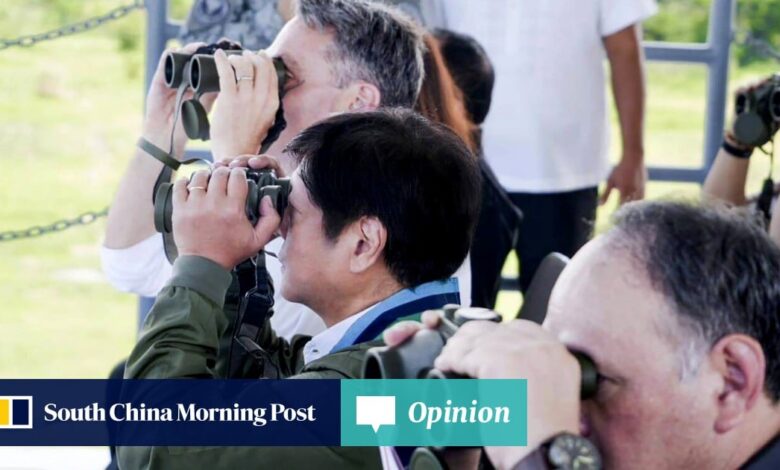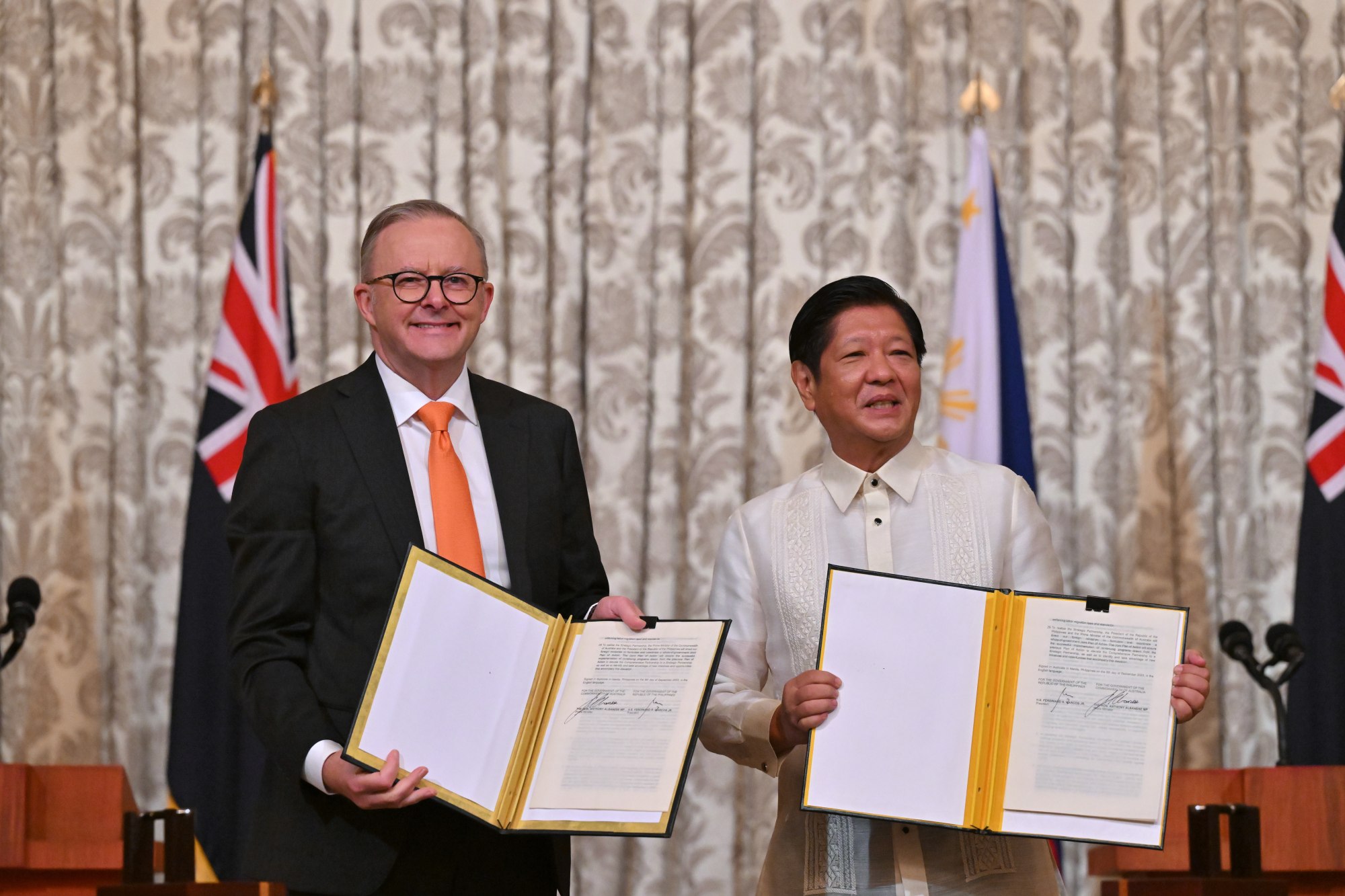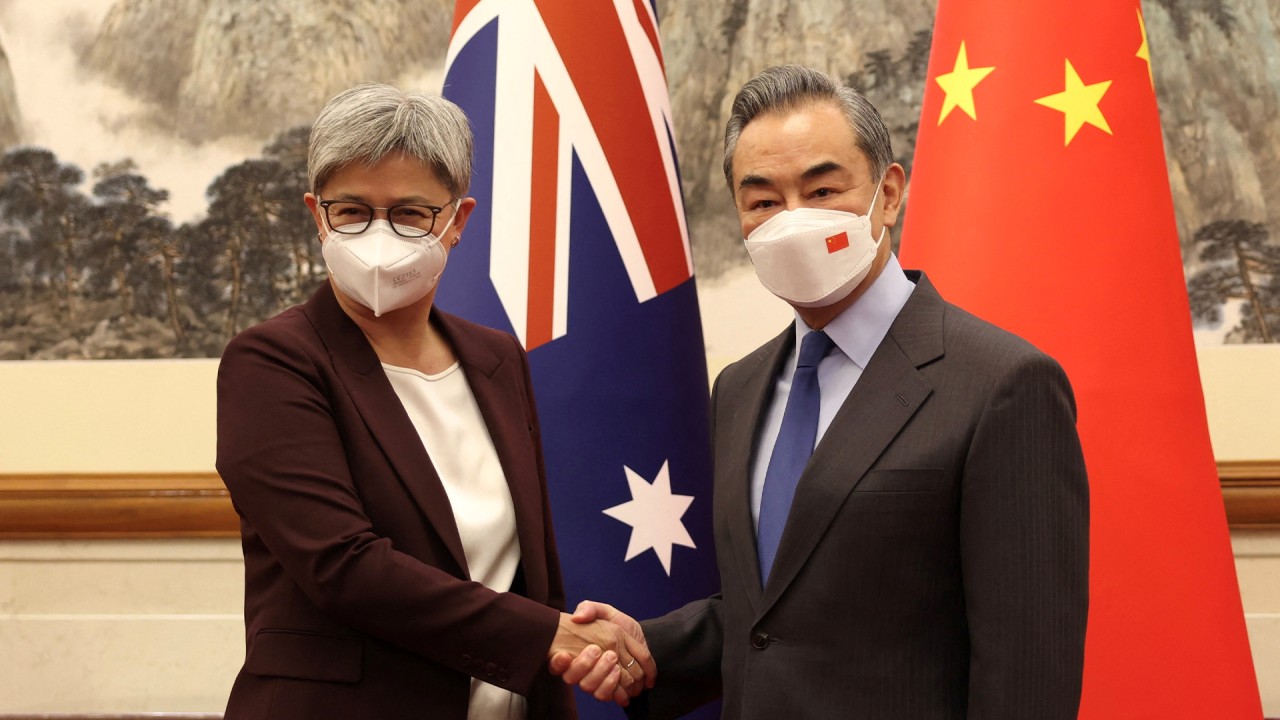Opinion | In a dangerous tilt, Australia’s defence hawks are moving foreign policy away from diplomacy

[ad_1]
However, this arc of peaceful diplomacy was quickly undermined after Albanese landed in Manila. There was no mistaking the intent and purpose of the visit. Under the proclamations of friendship was an agenda fully endorsed by security hawks in Canberra, many aligned with America’s Indo-Pacific vision.

But it was Albanese who expanded the extent of cooperation with the Philippines, widely seen as a counter to China’s influence in the region. The coming joint naval patrols are viewed as resistance against China’s sweeping territorial claims. The leaders have also agreed to annual formal meetings between their defence ministers.
So where does this leave Foreign Minister Wong and Moore, the special envoy for Southeast Asia?
It would seem that Marles has a greater influence on Albanese and this, coupled with his defence policy, is trumping attempts at diplomacy. The optics of the visits to the Philippines and its rapid elevation as Australia’s strategic partner has neatly undermined Wong’s genuine efforts to enhance consultation and cooperation in the region.
If Wong’s diplomatic overtures were left dangling, it would further undermine Australia’s ability to build trust and play the honest broker in the region.
The strategic division between Marles and Wong go beyond any political infighting – it is no less than a battle for the strategic direction of Australia’s engagement with the region.
On one side is Australia’s commitment to Asean and its objectives of non-militarised solutions to the rise of China. In the other camp, hunkered behind an impressive array of weapons, is a militarised lens through which the exercise of foreign policy is viewed as an adjunct to military action.
Australia wants to court Southeast Asia, but its affections seem to be skin-deep
Australia wants to court Southeast Asia, but its affections seem to be skin-deep
Albanese’s enthusiastic discovery of a strategic partner in the Philippines suggests that the military version of what foreign affairs is about, is firmly on the ascendant in Canberra. Wong is charming, intelligent and well-informed, but also increasingly an irrelevant player in Australia’s engagement with Asia.
Albanese’s flurry of visits to Asia was billed by Australian media as a six-day regional balancing act. Referring to the mixed diplomatic messages, an Australian official said: “Playing to just one side is the easy thing to do” but “you’ve got to do what you got to do”. Australia appears to be taking the easy way out by tipping the balance firmly towards military solutions.
Daryl Guppy is an international financial technical analysis expert and a former national board member of the Australia China Business Council. The views expressed here are his own
[ad_2]
Source link






